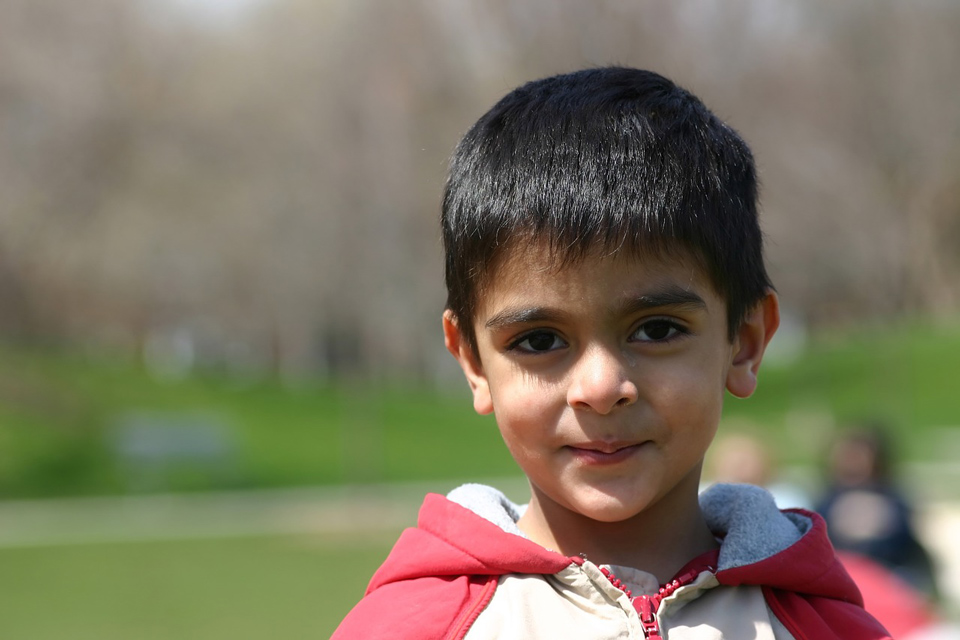Arjun's Story
Arjun is a bright child but lacks confidence in his abilities, is a perfectionist, hates to be put on the spot and to be challenged outside of his comfort zone. Discover more about how his parents and school helped him.
Six-year-old Arjun* loves his activities. He enjoys trampolining, Beavers and has a slight obsession with drawing comic strips and reading the Beano. Arjun has very good social skills and a close group of friends.
He attends a state primary school. His class teacher says he is a friendly and well-behaved child, with a good attitude to his work. However, Arjun lacks confidence in his abilities, hates to be put on the spot and doesn’t like to be challenged outside of his comfort zone. When faced with new experiences in class or being asked about his work, his automatic response is “I don’t know” or “I’m not sure”.
Arjun takes a long time to complete some tasks, particularly writing, although the school isn’t concerned about his handwriting itself. School have spotted his potential but when they offered Arjun the chance to do differentiated work in maths outside the classroom, he became so upset at the thought of being separated from his classmates that they couldn’t go ahead.
His parents are worried about Arjun’s lack of confidence and underachievement and how much he runs away from anything that could challenge or stretch him.
Potential Plus UK's Advice
Arjun had an educational assessment which placed him in the top 1% of the population for his age, however, the assessor also observed that Arjun has strong perfectionist traits, which were probably holding him back.
The Power of the Word ‘Yet’
Many children with high learning potential struggle with perfectionism. They often see the bigger picture and in much more depth than their age peers, They feel that they should be able to work at the same level as older children or adults, without understanding that physical characteristics like gross or fine motor skills, executive function skills like being able to plan and juggle tasks, and emotional maturity, haven’t yet developed enough for them to do this. That they can’t Yet do something. When a child’s advanced ability is noticed, praised and creates a certain expectation of achievement, a child with high learning potential may develop a misconception of their abilities and a fear of letting people down. When their ability and their self-belief is challenged it can lead them to freeze and eventually to avoid challenges which create that feeling of discomfort.
Arjun is struggling at the thought of trying anything which he can’t do perfectly. He needs to accept that it is alright not to be perfect, build resilience and understand his abilities better. He needs to embrace challenge instead of fearing it and to understand that it is alright to not be able to do something yet. That it is alright to fail. “Failure is Success in Progress” – Einstein
Help Arjun to Build his Self-Esteem and Overcome his Fear of Challenge
- In a light-hearted way, model failure and mistakes and strategies to overcome them: “oops, one of these days I will be able to make toast without setting off the smoke alarm” – discuss what you might be able to do about it “I must pay attention to the time the toast is in” “Perhaps if I turned the setting down on the toaster that would help” “Maybe if I put the extractor fan on and shut the kitchen door then if I burn the toast the smoke alarm won’t go off” … Show how taking stock and trying different steps can help you to achieve your goal and that it is ok not to do things perfectly, or that your goal might change “you know, maybe I could get to like toast that is a bit more underdone!”. Play family boardgames to show that it everyone fails some of the time – and model how to fail appropriately.
- Praise effort, rather than achievement (it isn’t about achieving in a big way but the trying that is important) and praise non-academic things like kindness.
- Help Arjun to express himself, to acknowledge his feelings perhaps by using a feelings wheel and discover the words to describe them. He might enjoy building his own toolbox of strategies to help him overcome his negativity and anxiety with books and other materials (e.g. mindful CDs and other self-help books on anxiety for children, workbooks for gifted children). Give him talking time – ask him open questions that don’t put him on the spot – and provide ways for him to write down or draw his worries to share with his parents.
- Find activities which incorporate small goals while building to something bigger. This will help build resilience and experience in overcoming challenges. Work on activities in areas of interest which will make it more likely that he will persist on them.
- Make sure that Arjun is measuring himself against his own previous performance, rather than that of others. It is possible that Arjun is comparing himself to an idealised, perfect version of someone at his cognitive level, or comparing himself to adults. Offer him the chance to meet same-ability peers, this might be through taking part in Potential Plus UK Events and meetups or at school if they are willing to accommodate this. Meeting peers and making friends with those who work at the same level as him will help Arjun to both enjoy challenge at a suitable level without fear of standing out, and see that no one is “perfect”.
- Consider an online maths programme that allows him to work at his level, but doesn’t make him feel like he is doing scary serious stuff that is very different from that of his peers. As Arjun enjoys cartoons, perhaps find a maths programme that is quite cartoonish.
- While the school has no worries about his handwriting, Arjun takes a long time to complete tasks. Occasionally, find ways to take off the pressure of creating a “perfect piece of work” and let Arjun enjoy showing off his knowledge – perhaps by creating cartoons (which he loves to do), creating posters or recording answers.
- Arjun’s parents have a good relationship with his school. Continue to work in partnership with his school and show appreciation for all the help they have provided.
What Did Arjun’s Parents and School Do?
It was great to hear feedback from Arjun’s parents about how they and Arjun’s school incorporated our advice.
Arjun’s Parents
Arjun’s parents are working in positive partnership with the school. They are modelling mistakes to Arjun and both he and his mother have started piano lessons so that they can learn together over time. They are keen to show Arjun that it is alright to struggle in order to learn how to do something.
Arjun’s School
Arjun’s School has rewritten its curriculum planning to increase the level of challenge for all learners. In addition, it created a small group of children from across the three forms in Arjun’s year to enable them to work together regularly on tasks with additional complexity or problem-solving, often with more than one possible answer (to reduce the anxiety of ‘getting it wrong’ and increase taking a challenge). It has also introduced a marking scheme across the school that reflects the level of effort put in, as well as the end result. School recognises that Arjun still has the potential to work beyond his peers, but are trying to balance this with the need to build his self-esteem. They are reviewing the outcomes on a termly basis together with Arjun’s parents.
Find out More – Resources from Potential Plus UK
Advice Sheet – Free to all
PA109 – Comic Books Suitable for Younger Readers
Advice Sheets – Free to members. Small charge to non-members.
- PA601 Social and Emotional Development of High Learning Potential Children
- PA602 Helping to Raise Self-Esteem in High Learning Potential Children
- PA604 Perfectionism and High Learning Potential Children
- PA606 Worry and Anxiety in High Learning Potential Children
- PA616 Describing Feelings
Blogs
- 10 Questions about Mindset and High Learning Potential
- High Learning Potential Parenting: “Can’t Cope?” – Try Nurturing A Growth Mindset
- Worrying Times – A Resource Round-Up for Real-World Anxieties
Webpages
* Arjun’s name has been changed. Read about more genuine young people with high learning potential helped by Potential Plus UK in: Family Stories
About the Author: Geraldine Glover is Potential Plus UK’s Community Information Coordinator. She is a Chartered Information Professional with a background in editorial work and information science. She is the mother of two children with high learning potential.









